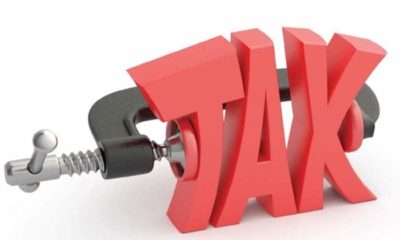“The case remains the same with our current contribution between oil and non-oil GDP, for which our analysis on oil revenue to oil GDP reveals as 39 per cent while non-oil revenue to non-oil GDP as 4.2 per cent. Our Value Added Tax revenue to GDP in Nigeria for example stands at less than one per cent (0.8 per cent) which compares unfavourably to ECOWAS average of 3.4 percent.”
“So also, is our excise revenue which is 4.1 per cent compared to Ghana at 15.3 percent or Kenya at 19.5 percent. It is important to reiterate that though tax exemptions and concessions have for long being used by successive Governments in Nigeria to attract both domestic and foreign direct investments in the country with the expectation that the revenue foregone will lead to commensurate benefits in the economy in the form of employment generation, capital formation, wealth creation and poverty alleviation, revenue generation, technology transfer, amongst others, they constitute huge tax expenditures and revenue leakages to government,” Minister of Finance, Budget and National Planning, Zainab Ahmed said during a workshop in Abuja on Tax Expenditure, organised by the Economic Community of West African States (ECOWAS).
Represented by the Director, Technical Services in the Ministry, Fatima Hayatu, Ahmed, Ahmed spoke on the implementation of Support Programme for Tax Transition in West Africa.
She noted that the PATF is targeted at promoting the management of domestic taxation and ensure better coordination of taxation in the ECOWAS and West African Economic and Monetary Union regions.
The Minister also noted that Nigeria’s low revenue generation capabilities had been connected to the different economic challenges faced by present and past administration.
According to her, Nigeria is faced with challenges in mobilising domestic funds necessary for human capital development and infrastructure that are both drivers of sustainable economic growth and development. The Minister assured that the current regime of the President, Muhammadu Buhari would continue to reiterate the need to examine tax expenditure component of the federal government aggregate spending.

















